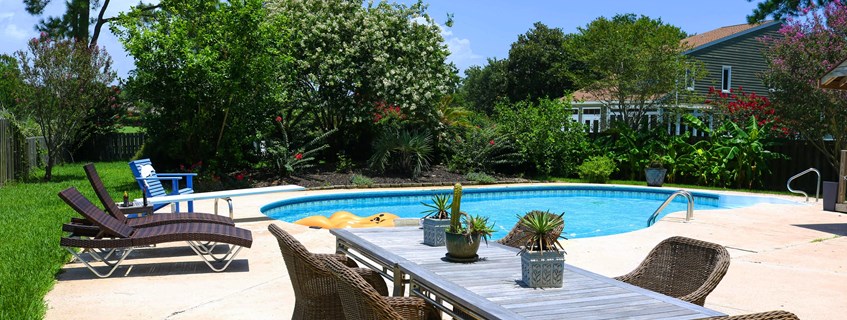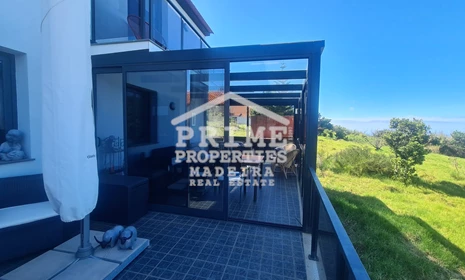From a very difficult process to legalise short term rents, a new decree law was published in 2014 liberalising this process. Essentially, this is a self declaration process, though subject to municipal inspection after the fact.
In terms of taxation, it was initially very beneficial to legalise the process, as in some cases the actual incOme tax did not go beyond about 4% of turnover.
Short term rentals is a business like any other – it is subject to the same and all laws as any other business. Though in some specific cases, a more simplified process may be applicable. A short term rental business, is in effect a 'mini hotel' under Portuguese law.
LEGAL ISSUES
· Register an 'inicio de actividade' at the tax office.
· Register with the Tourism office (usually through the local 'Camara' – municipality).
· Register with the Border Control Authority (Serviços de Estrangeiros e Fronteiras).
There are also other obligations, namely:
· Belong to a conflict resolution organization to settle minor conflicts.
· Possess a complaints book.
COMPULSORY SAFETY REQUIREMENTS
The property should have the following items;
· First aid kit
· Fire extinguishers in each floor
· Fire blanket in kitchen
· Emergency telephone list
· Appropriate signage (e.g. electrical and gas cut off).
There are obligations, though not legally required, but advisable:
· Insurance to cover third party claims
· Appropriate safety features especially for children e.g. railings in balconies are not horizontal, if it so, then appropriate safety features need to be added.
Each municipality has slightly different interpretation of the law, especially as what is required in terms of safety regulations – usually better to go along with local requirements than to get tied up in disputes with the local authority.
BOOKKEEPING ISSUES:
In Portugal there are 2 systems to determine the profitability of an enterprise. A taxpayer in certain cases may opt for a comprehensive sets of accounts where every transaction is recorded in accordance with the national accounting plan and signed off by a locally registered chartered accountant or else, if the annual turnover (in the case of an unincorporated taxpayer) is less than €200,000.00. opt for a deemed profitability determined by the tax authority. In the case of short term lets, this deemed profit is 35%. i.e. 65% is deemed to be operating costs.
As from the 2017 tax year, a tax payer may also opt for a 3rd option of simplified basis of taxation in that the profit may be determined in accordance with the actual profit i.e. turnover – direct attributable expenses (finance and depreciation are not deductible. Neither are furnishings etc ). This option may be useful if the expenses are expected to be over 65% of operating costs.
INCOME TAX
The income determined per 1, 2 or 3 above will be subject to income tax. For resident taxpayers, if taxed on option 1 above, the net income will be added to the taxpayer's other income and subject to tax at the individual taxpayer's marginal tax rate. If income is determined taxed on the 3rd option, then the taxpayer has the option of being taxed at marginal rates or at 28% (in effect placing a ceiling on the taxation)
For foreign taxpayers, the income determined above is taxed at 25% (effectively 8.75% of turnover (35% x 25% in the case of the simplified regime), but in the case of taxpayers resident in the EU, they do have an option at being taxed at marginal rates taking into account all their income. In this case they will have to disclose their foreign income (the local tax authorities will then have the option of cross checking with the 'home' countries).
Other tax obligations:
If any payments are made to enterprises in other countries, then the tax payer has to either:
· obtain fiscal residency certificates from the service provider in the appropriate format.
· or may retention taxes at the rate of 25%.
Capital Gains
Should a property in the AL owned and operated by the owner be sold and capital gains result therefrom, then it will be subject to income tax. There is a 5% discount – the balance being added to the taxpayers 'other' income.
VAT
The AL regime is classified under the hotel regime and is subject to tax at the minimum tax rate of 5% in Madeira and 6% in the mainland. For practical purposes, 6% may be considered the normal rate for foreign tax payers without a local fiscal representative (European Union residents). This is applicable if the projected turnover is expected to be more than €10,000 per annum, or else, if the previous year's turnover was over €12,500, then an alteration of regime has to be done in January of year 2. VAT returns are submitted regime has to be done in January of year 2. VAT returns are submitted quarterly, unless the annual turnover exceeds €650,000.00 which is unlikely in this type of undertaking.
Off course the VAT determined above is excluded in determining the value declarable for VAT purposes.
Quarterly Vat returns are due by the 45th day following the quarter.
Invoices from abroad are subject to VAT – if the enterprise is registered for VAT, then on the reverse mechanism i.e. charge and deduct vat simultaneoulsy. In the case of enterprises not registered for VAT, then the VAT not paid, is payable on a monthly basis to the tax authority.
INVOICE CONTROLS
Tax payers have an option of registering every invoice directly on to the tax authority's database i.e. issuing the invoice on the 'system' or else purchasing / renting an appropriately authorised invoicing system and issuing the invoices on such a system. The taxpayer has a limit of 5 days after providing a service to issue such invoices. In the case of invoices produced by own system, they have to be reported, (files submitted electronically) by the 20th of subsequent month
CONTROL OF FOREIGNERS
Every entry of a foreigner has to be reported to SEF (see above – registration).
SOCIAL SECURITY (SS)
Though in certain cases, SS contributions are not due, the enterprise, taxpayer should also register with the tax authority.
In the case where the taxpayer is a pensioner or already contributes to a social security system, then proof has to be made. In the case of EU residents, this is by means of the form A1 issued by the social security authorities of the country of residence.
Social Security contributions on the simplified regime is normally due as from October of year 2 of operation where proof of exemption / contribution into another system has not been made. The base to calculate the social security contribution is 70% of turnover at a rate of 29.6% (though the specific contribution is based on bands which can be slightly below or above this 70% base). At the moment it is not absolutely clear whether the social security is applicable to tax payers in the 3rd option (income tax) see above).
OTHER ISSUES
Currently there is an ongoing debate and court cases and also possible future alterations to the legislation on whether it will be necessary to get authorisation from fellow owners in apartment complexes to be able to let properties on short term rentals. This will off course not be applicable to self standing units.
ECO / TOURISM TAXES
Some municipalities, namely Lisbon, Cascais and Santa Cruz in Madeira, have instituted tourism taxes. These are normally charged on a per head / per day basis - normally applicable to adults. The rate applicable in Santa Cruz is €1 per day with a maximum of €5 per person per stay.
DOCUMENTATION
To register a property under the alojamento local regime, the following documents are generally required (these may differ slightly from municipality to municipality):
- Certidão do registo predial (deeds office extract)
- Caderneta predial (tax record of the property)
- Copy of rental contract if property rented, or copy of cession, if property ceded for no consideration
- If done by a third party – power of attorney
- Copy of id / passport


